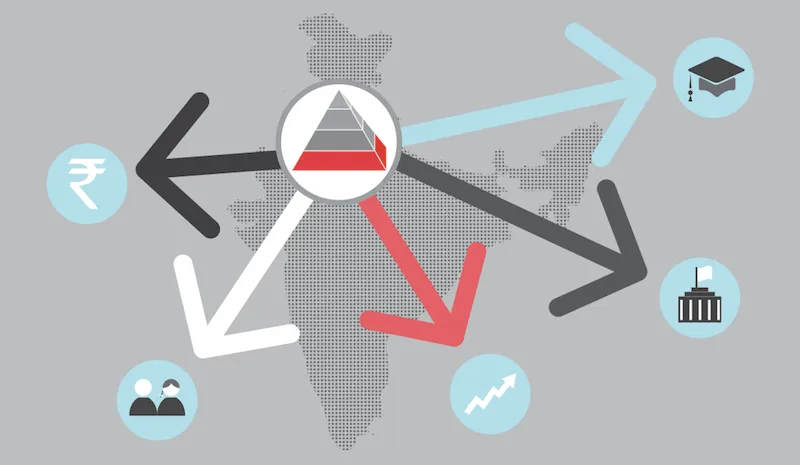The State of the Bottom of the Pyramid (BoP) Education Entrepreneurship Ecosystem in India

With over 68% (~780million) of Indian population living under Bottom of the Pyramid (BoP) of $2 per day, there is a dire need to create scalable, affordable and impactful education models to cater to such a vast audience. In addressing few of these concerns Perspectful Advisors - a consulting and advisory firm helping educational organizations grow, and German Federal aid entity GIZ which supports people and societies worldwide in creating sustainable living and building better futures, have teamed up to do a detailed study and come up with an insightful report to advance the knowledge of BoP education market in India and support education entrepreneurs as well as investors by highlighting innovative ways of overcoming common challenges in serving the BoP demographic.
“Grow fast, grow well”, seems to be the plausible conclusion from the study and the report also states that investors are looking for entrepreneurs who can demonstrate a growth story that does not sacrifice the quality of the offering and which also produces long-term positive rewards to beneficiaries. The report offers a number of valuable insights in navigating the already complex and mucky waters of starting up a company while giving deeper support to those focused on education at the base of the pyramid. The key takeaways are threefold: strong networks are imperative to success, continuously measuring one's impact is difficult but important, and taking each stakeholder's perspective into account can be vital during the sales process. The team is now working on creating www.ReviewEdu.co as a by-product of this detailed study to help more edupreneurs in creating successful education ventures. Below is the brief excerpt from the report
1. Networks
The most recurring and underrepresented finding of this report is the extreme dependence of education enterprises upon a network. Human networks were cited as imperative to reaching and closing deals with potential customers as well as a necessity when raising finance capital. There is an evident lack of well-organized collaborative networks available to enable education enterprises to access new customers and capital.
2. Impact
While both entrepreneurs and investors value the impact their product or service is making, it is difficult for companies to evaluate their impact. There is a dearth of affordable impact measurement solutions available to support an enterprise’s claim that they are making an impact on learning. Furthermore, implementing an impact evaluation internally is extremely resource intensive. A common standard for learning that offers metrics and benchmarks for “impactful education” seems necessary as this sector begins to mushroom and quality becomes questionable. Furthermore, in order for larger entities like the government to adopt any emerging innovations, proof of impact will be absolutely imperative.
3. Perspective
BoP customers often judge the quality of an education offering through tangible characteristics, which do not necessarily improve learning – such as uniforms, teacher-to-pupil ratios or painted classrooms. Furthermore, entrepreneurs, customers and beneficiaries face genuinely different problems (and thus solutions) in a particular situation. As such, companies offering innovation in education that address issues highlighted by rigorous research struggle to sell their products when packaged without tangible and superficial wrapping. This begs into question the customer perception of educational products and services and the marketing strategy employed by early stage education companies.
You can download the complete report for free here







